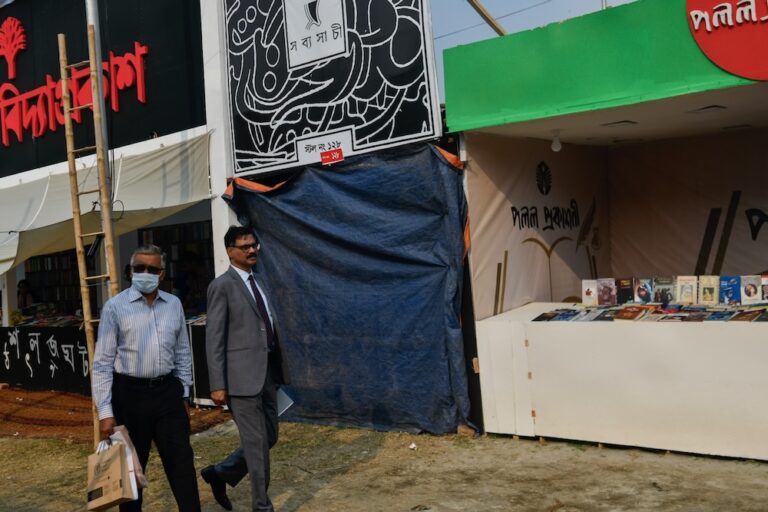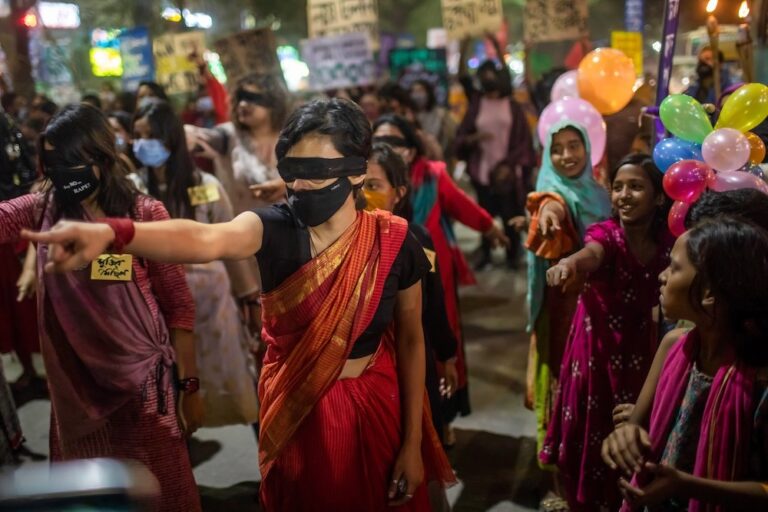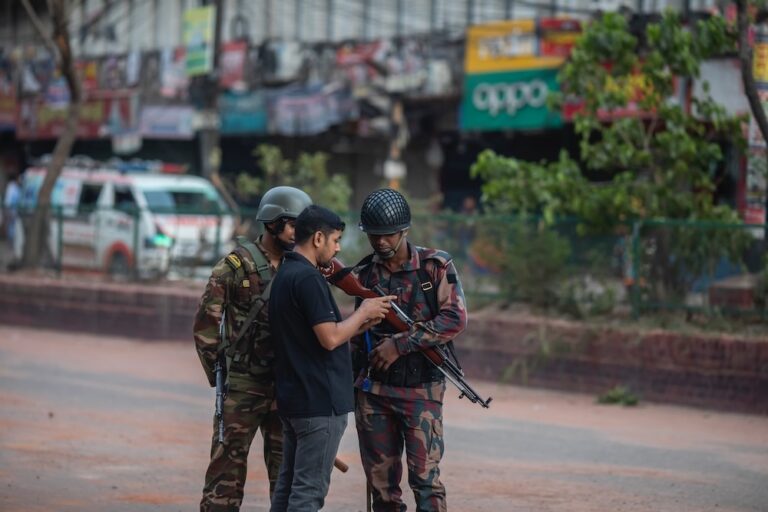(RSF/IFEX) – RSF says it is deeply saddened by the death of journalist Sheikh Belaluddin Ahmed of the daily “Sangram”, six days after he was critically wounded in a bomb attack on the Khulna Press Club, in southwest Bangladesh. Ahmed, aged 48, died on 11 February 2005 in the intensive care unit of a Dhaka […]
(RSF/IFEX) – RSF says it is deeply saddened by the death of journalist Sheikh Belaluddin Ahmed of the daily “Sangram”, six days after he was critically wounded in a bomb attack on the Khulna Press Club, in southwest Bangladesh.
Ahmed, aged 48, died on 11 February 2005 in the intensive care unit of a Dhaka military hospital. Three other journalists were injured in the attack, in which a bomb was placed in a bag and left on Ahmed’s moped in front of the club. It detonated as he approached the vehicle.
“We have been drawing attention to the dangers faced by journalists in Bangladesh, particularly in the Khulna region, for a long time now,” RSF said, expressing its support for the journalist’s family and colleagues.
“This tragic incident is a reminder that the authorities have to restore a climate in which press freedom can exist and put an end to the impunity enjoyed by the killers of journalists,” the organisation added.
“Dainik Purbanchal” editor Alhaj Liaquat Ali said on 6 February that attacks like the one on the Khulna Press Club the previous day had been made easier because of the impunity surrounding the murder of journalists Manik Saha and Humayun Kabir Balu in Khulna last year.
Speaking at a memorial ceremony for Ahmed at Dhaka’s national mosque, Information Minister Shamsul Islam said, “We shall find the criminals and bring them to justice. They must be punished at all costs.”
The three other injured journalists – Sheikh Abu Hasan, a reporter for the daily “Prothom Alo” and chairman of the press club, Jahidul Islam, a photographer for the national daily “Jugantor” and Rafiul Islam Tutul, a reporter for the daily “Loksomaj” published in Jessore, in the southwest – are recovering.
Police in Khulna have arrested eight suspects, but only one of them has confessed to being involved in the 5 February bombing. Yunus Mridha, alias Goda Yunus, said he was a rickshaw driver asked by three people to put a bag holding the bomb on a moped in front of the press club. But the police officer heading the investigation was quoted in the 10 February edition of “Inqilab” as denying this version of events. He said that Goda Yunus himself was responsible for the bombing.
A delegation of Khulna journalists is to travel to Dhaka on 12 February to bring to media owners’ attention the dangers they face as a profession. The journalists plan to hold a press conference at the capital’s press club.
In another recent incident, Dip Azad, a journalist with the Khulna-based newspaper “Jugantor” had a narrow escape on 4 January when a homemade bomb was thrown at him but failed to detonate. From Dhaka, he told RSF, “It is no longer possible to work in Khulna. Several journalists are considering giving up journalism under pressure from their families.”
Sheikh Belaluddin Ahmed is the first journalist to be murdered in Bangladesh in 2005. Four journalists were killed last year.


